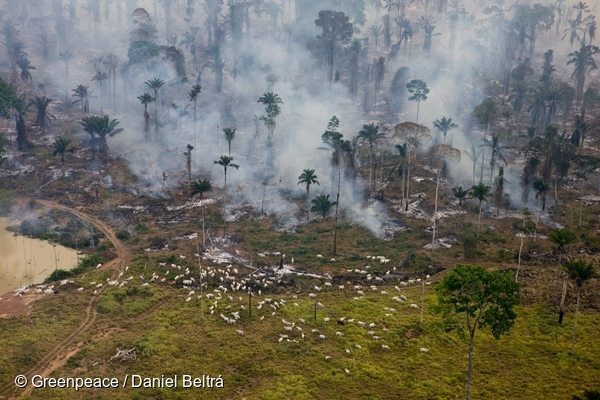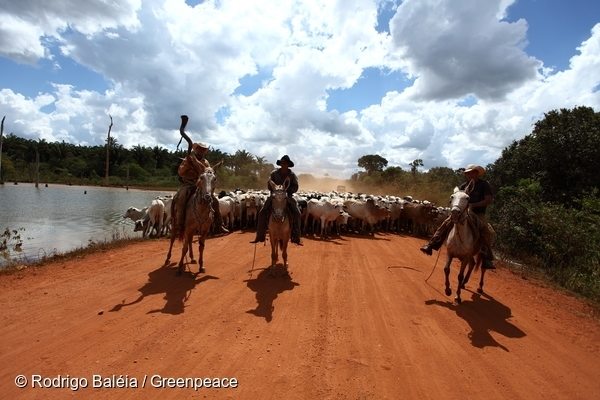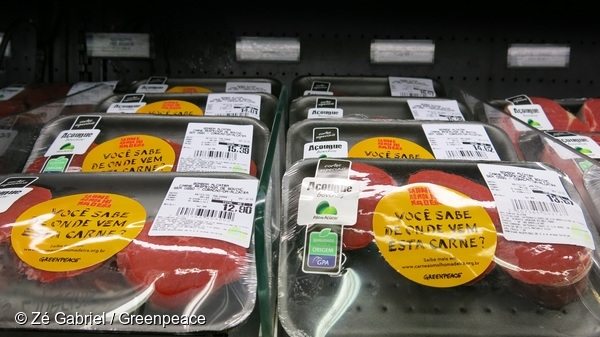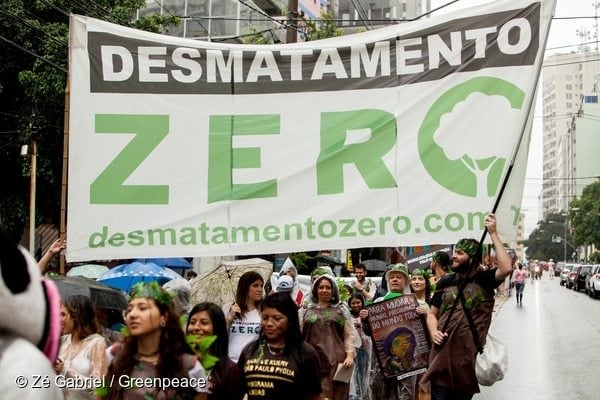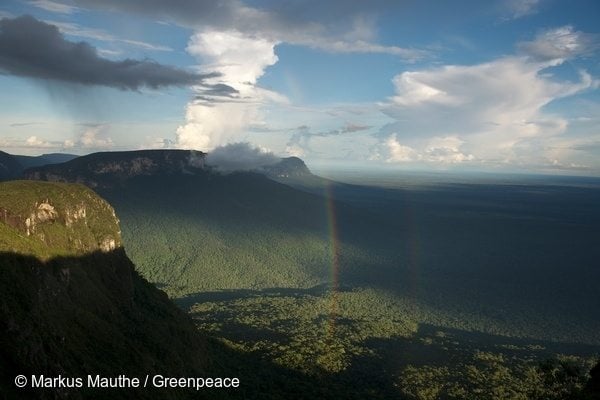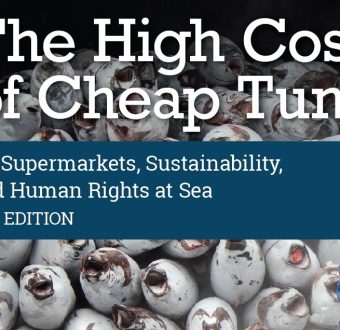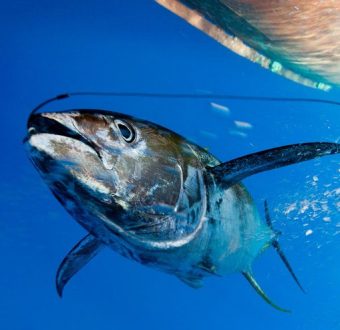Today Grupo Pão de Açúcar — Brazil’s largest supermarket chain owned by Casino supermarkets in Europe — announced huge changes to the way it buys and sells beef. After years of claiming ignorance about its supply chain, it is now taking action to keep beef linked to deforestation and labor abuse from its shelves.
This is a big deal for Brazil and the planet. Here’s why:
1. Stopping deforestation for beef is crucial for the Amazon and the climate.
The cattle sector in the Brazilian Amazon is the largest driver of deforestation in the world, responsible for one in every eight hectares destroyed globally. After rainforest is burned or clear-cut for timber, ranchers quickly move cattle into the newly deforested areas to feed on the fast-growing grass. There are already more cows than people in Brazil, and millions of those cows are in the Amazon region – occupying about 60 percent of all deforested land.
The impacts of cattle in the Amazon aren’t limited to Brazil’s borders. The Amazon rainforest stores huge amounts of carbon, helping to keep Earth’s climate in balance. Deforestation destroys the forest buffer we rely on, impacting the climate for all of us.
Up until last year when Greenpeace Brazil exposed the practices of Brazilian supermarkets, the companies were selling beef linked to this destruction with little consequence to them. Now, as Pão de Açúcar commits to transparency and strong policies to guide its beef purchasing, the supermarket is sending a clear signal to all its suppliers that beef connected to deforestation is no longer acceptable.
2. Amazon beef and labor abuse are connected. Addressing deforestation means addressing workers’ rights, too.
Livestock production in the Brazilian Amazon isn’t just the leading cause of deforestation there. It also has historically relied on slave labor and is often connected to the invasion of Indigenous Lands.
To address this, Grupo Pão de Açúcar’s has proposed a 100 percent transparency program for the beef sold in its stores that would block meat from farms involved in slave labor and clashes with traditional communities, in addition to deforestation.
3. Pão de Açúcar’s change of heart shows that consumer voices make a difference.
When thousands of customers of Pão de Açúcar made it known they wanted an end to beef linked to deforestation, labor abuse and invasion of Indigenous Lands, the company listened.
Consumers have the right to know if they are contributing to the destruction of the Amazon or the violation of human rights. The question now is how long it will take other supermarkets in Brazil to start listening, too.
What’s next?
Much remains to be done to ensure that meat across Brazil is not connected to deforestation, slave labour and illegal occupation of land. And people in Brazil and around the world need to eat less meat to ensure a stable climate, reduce pollution and improve health. But from supermarket aisles to the halls of Brazil’s National Congress, Brazilians are showing that real change for forests is possible. Just last year, more than 1.4 million Brazilians pledged their support for a law that would make Amazon deforestation of any kind illegal!
Greenpeace will continue monitoring Pão de Açúcar to ensure the company keeps its promises. Now, we need to push the rest of industry in the same direction.

